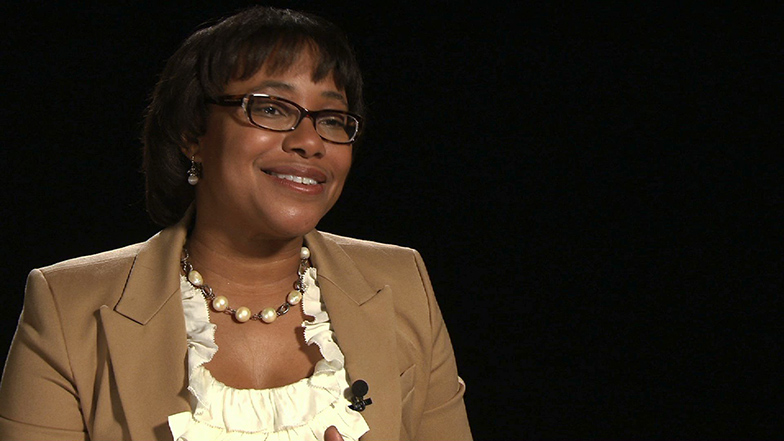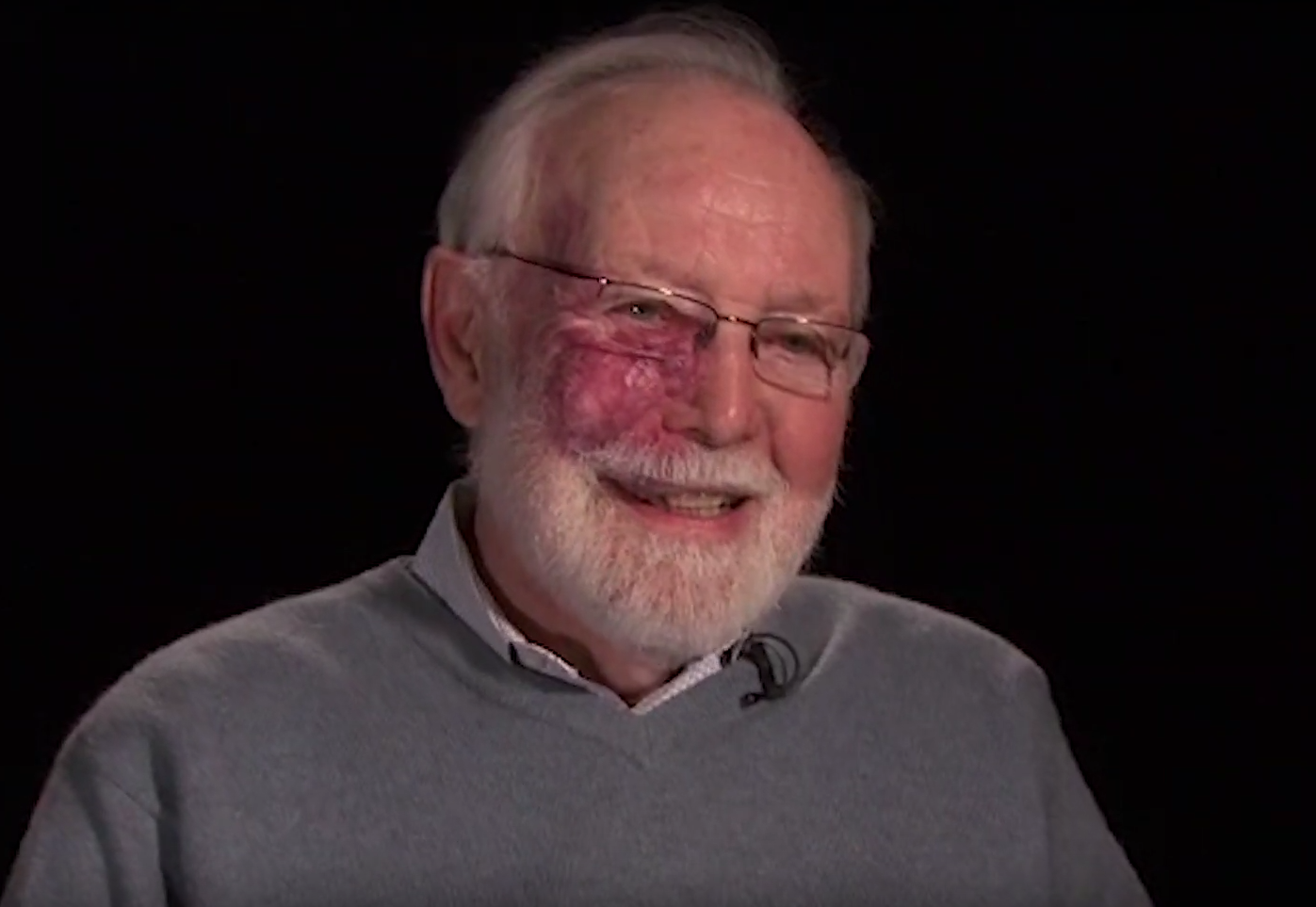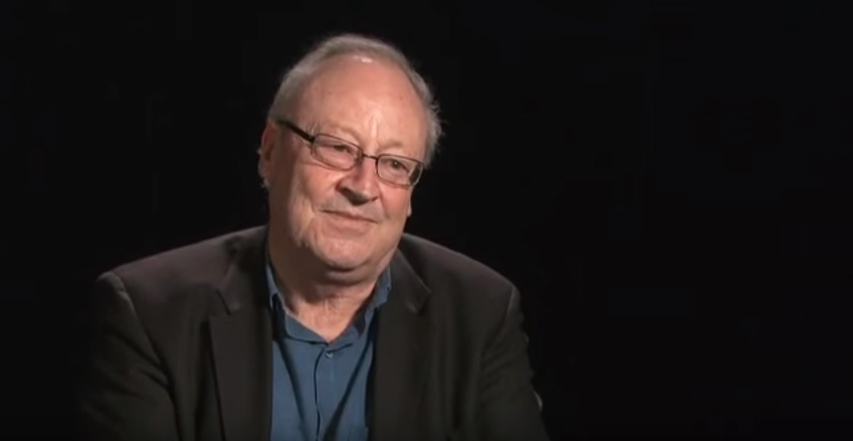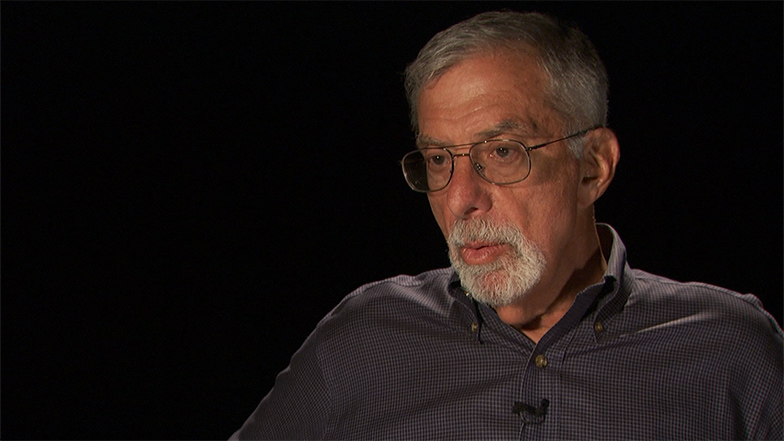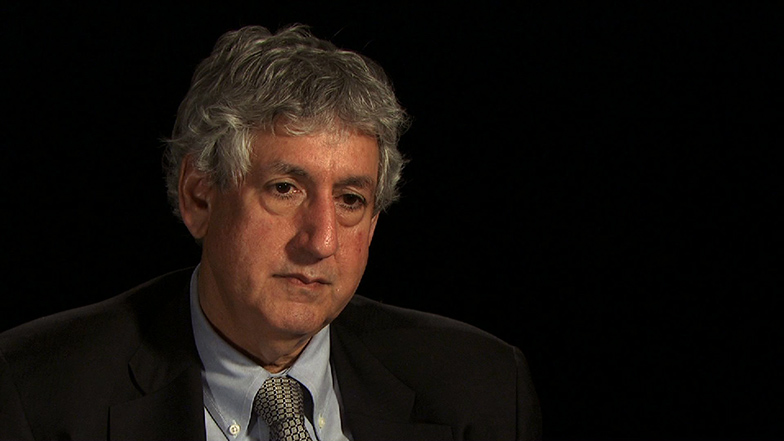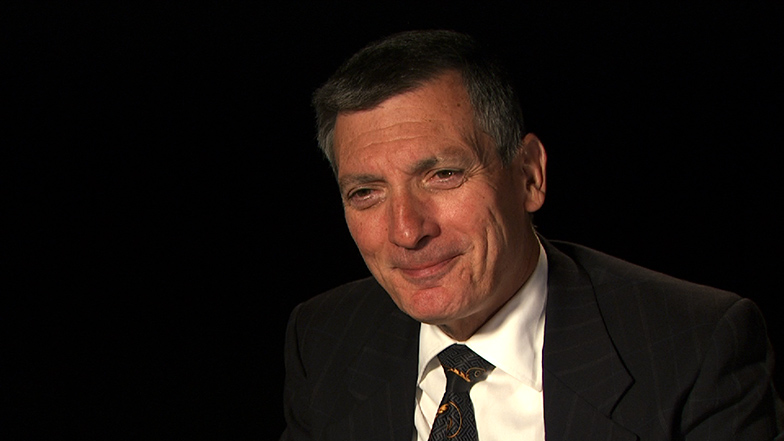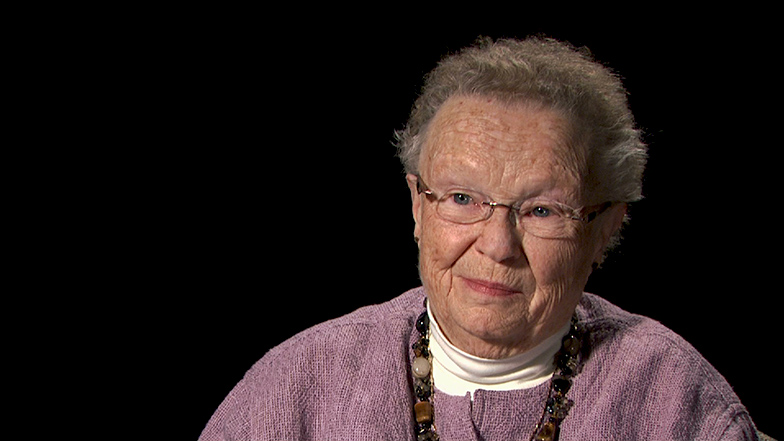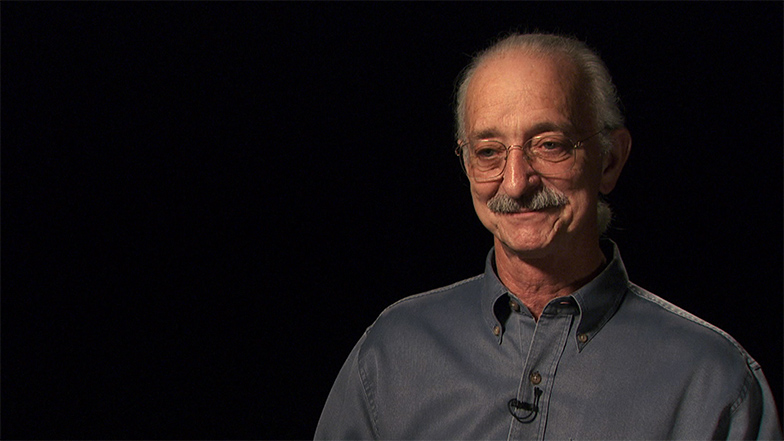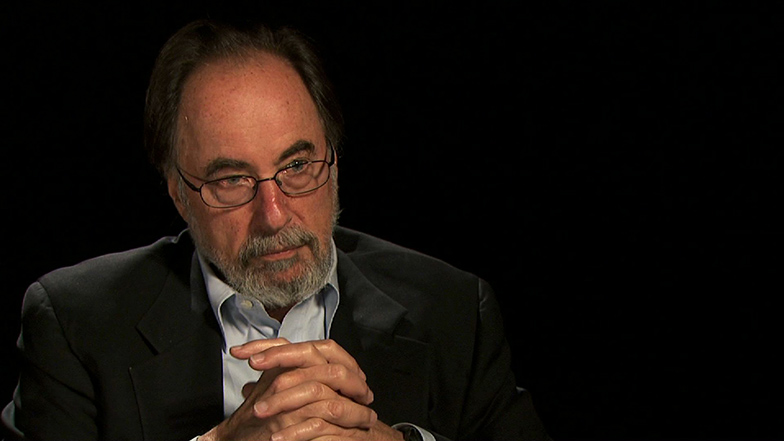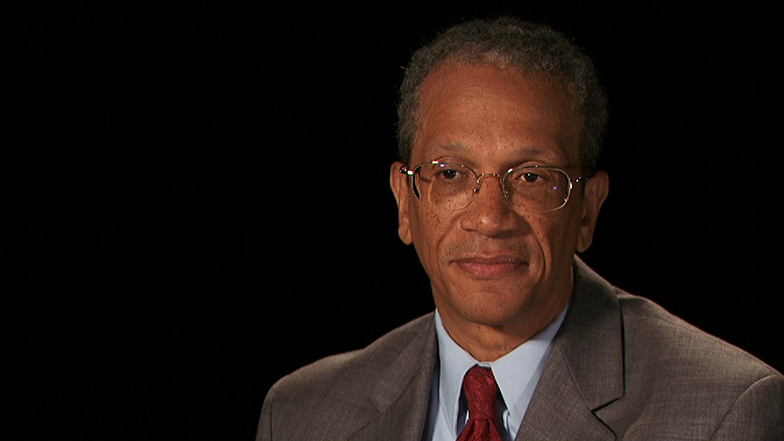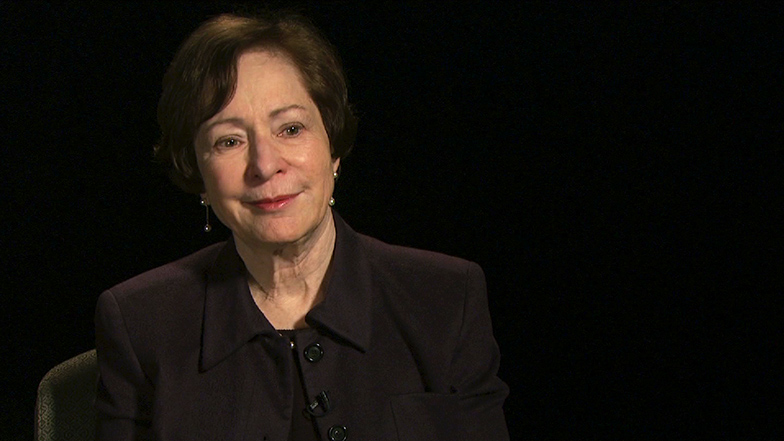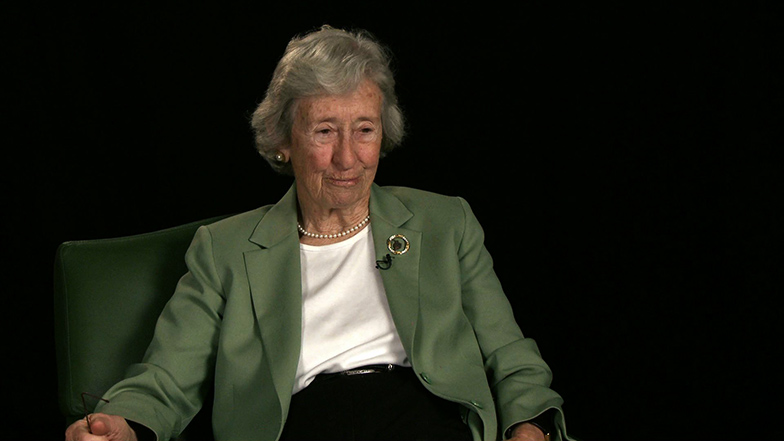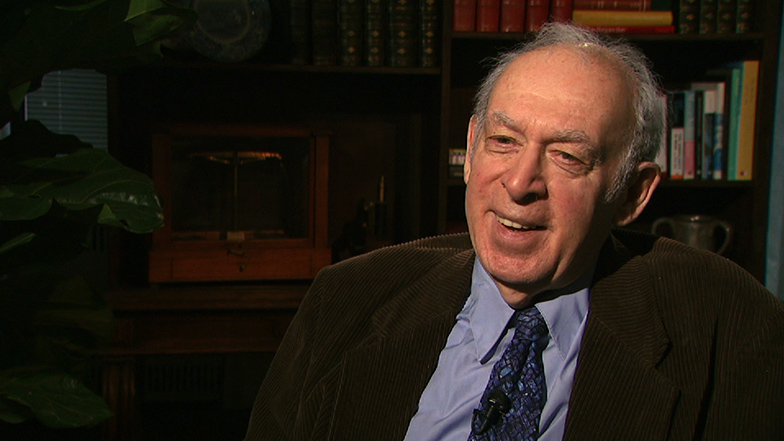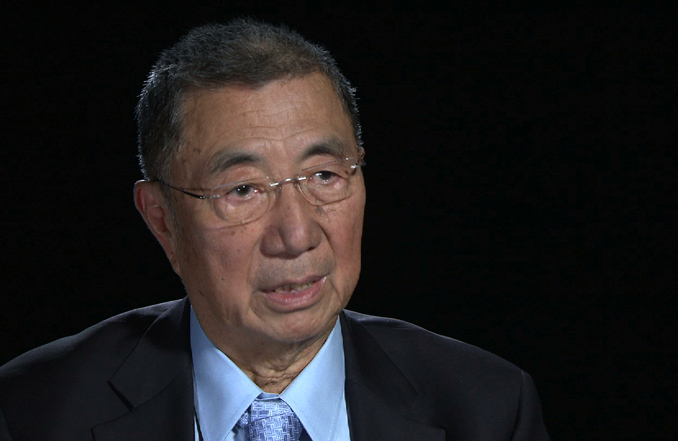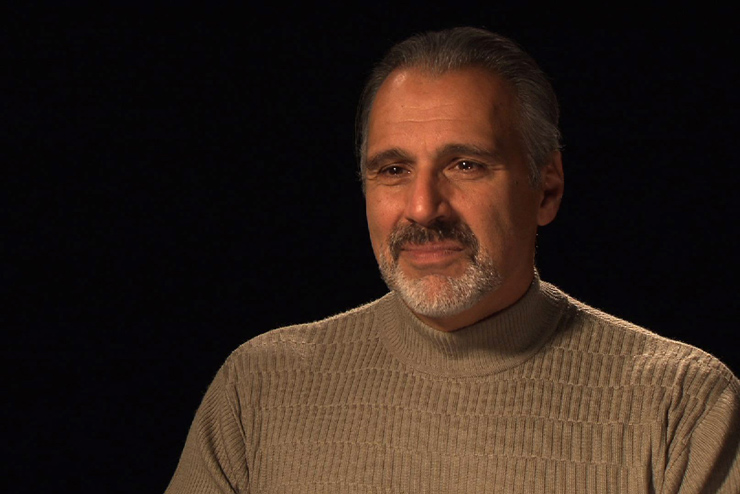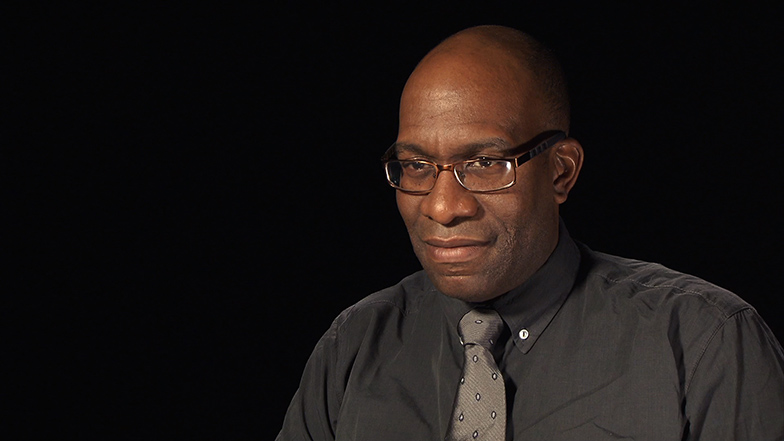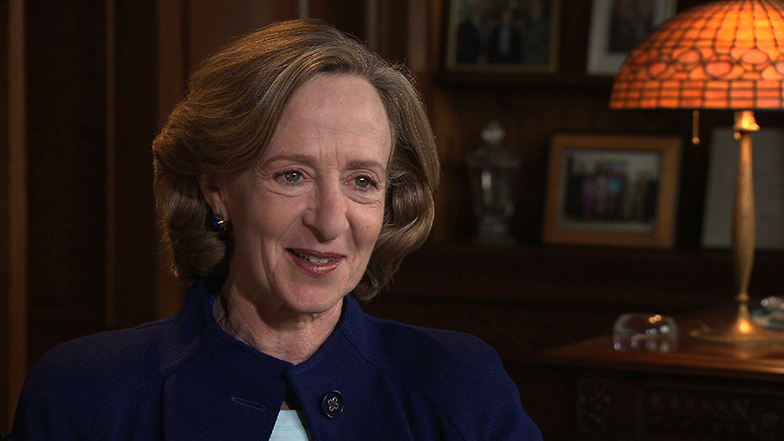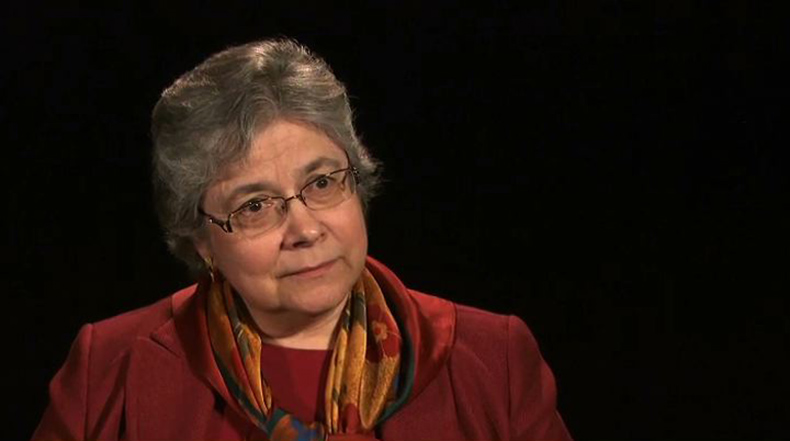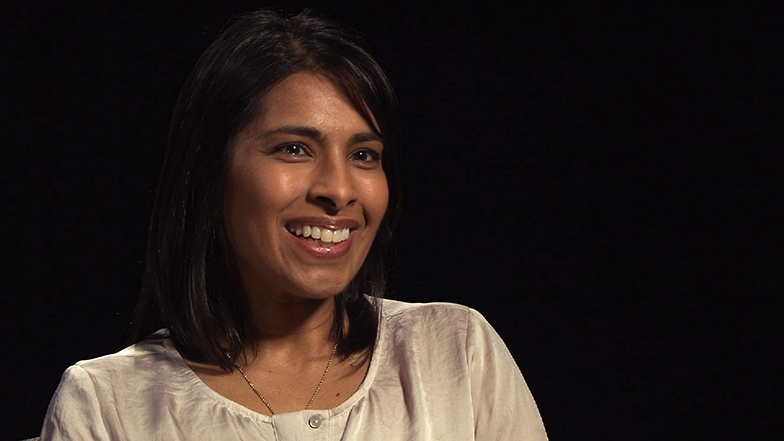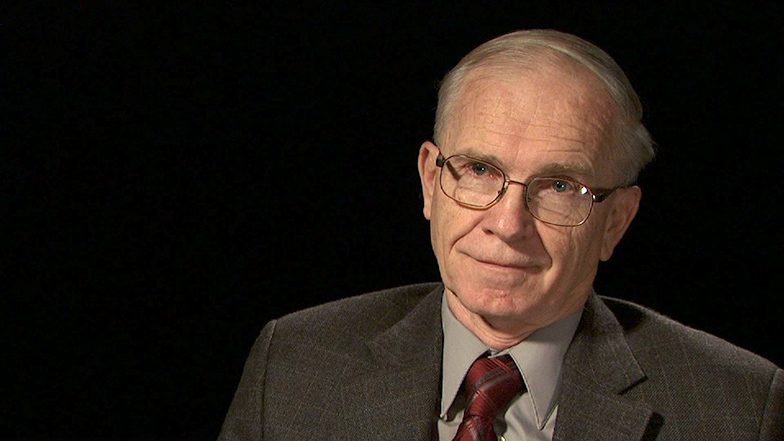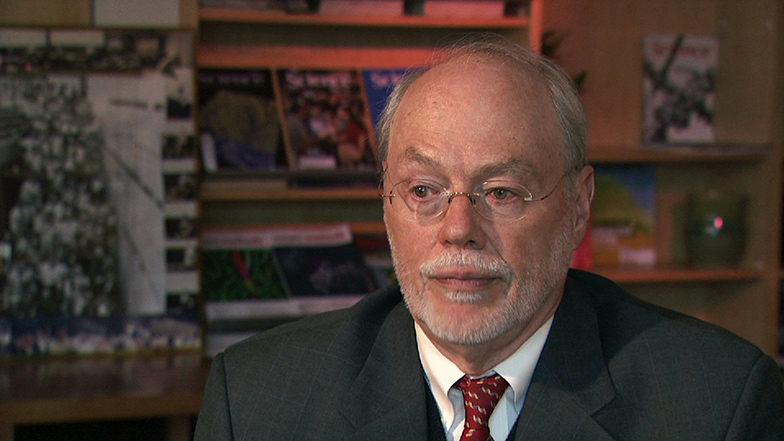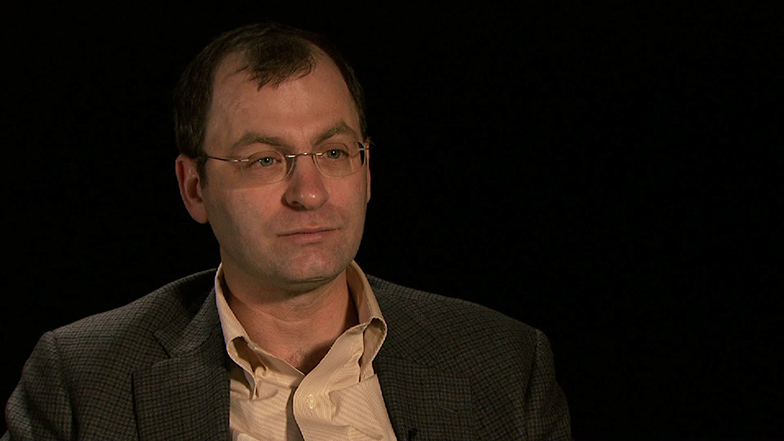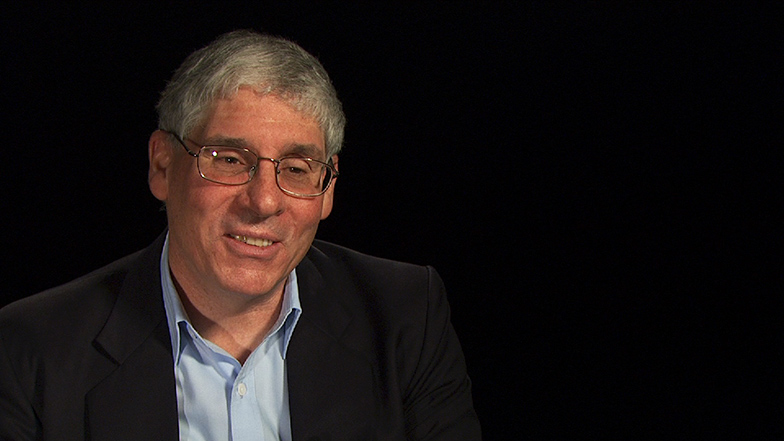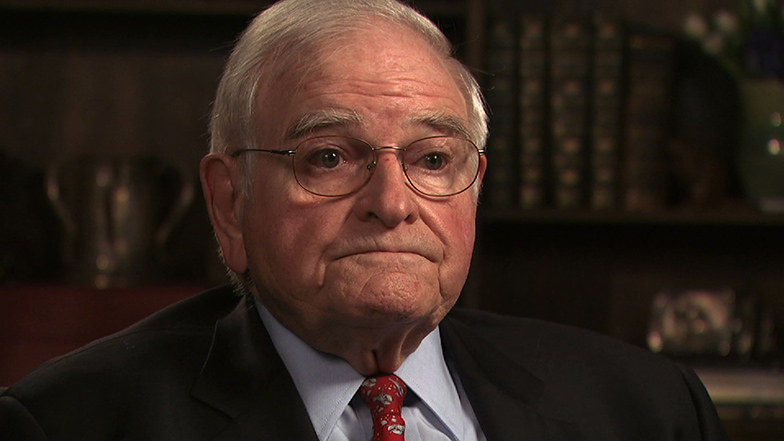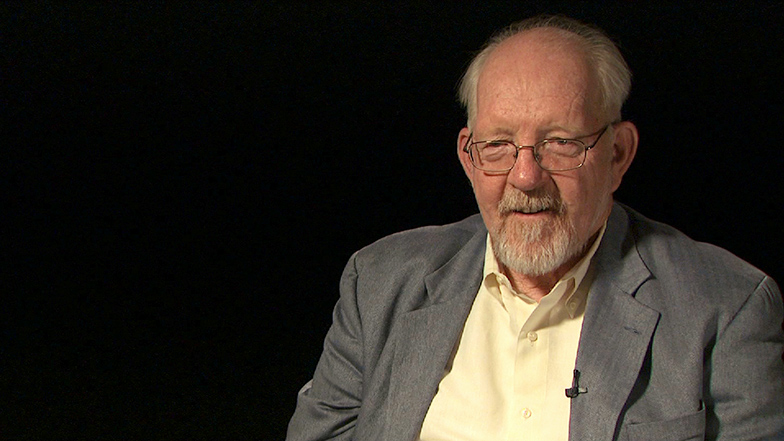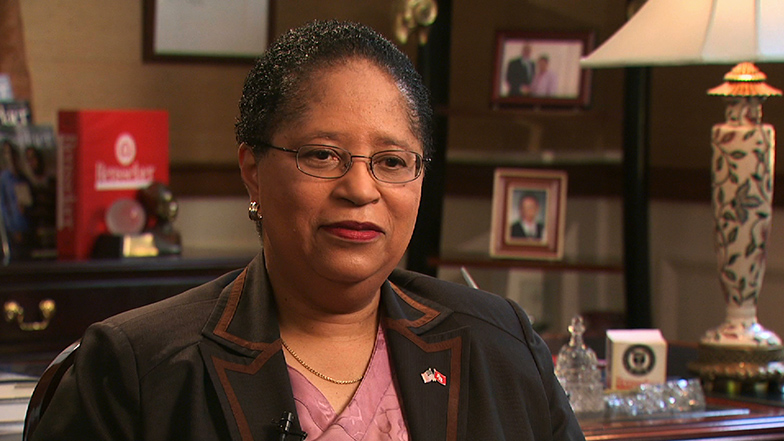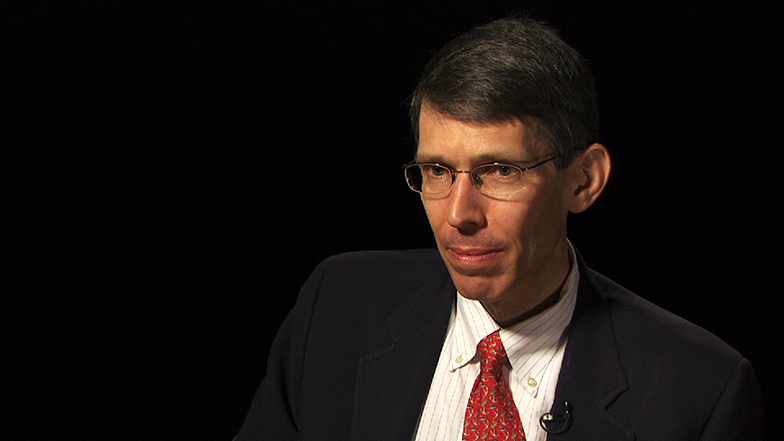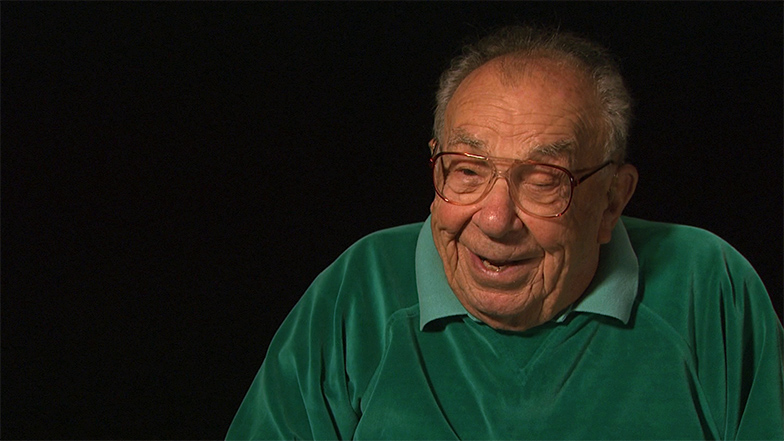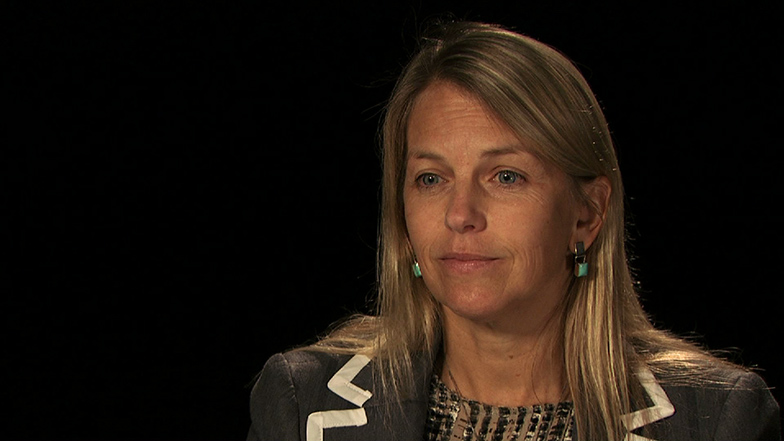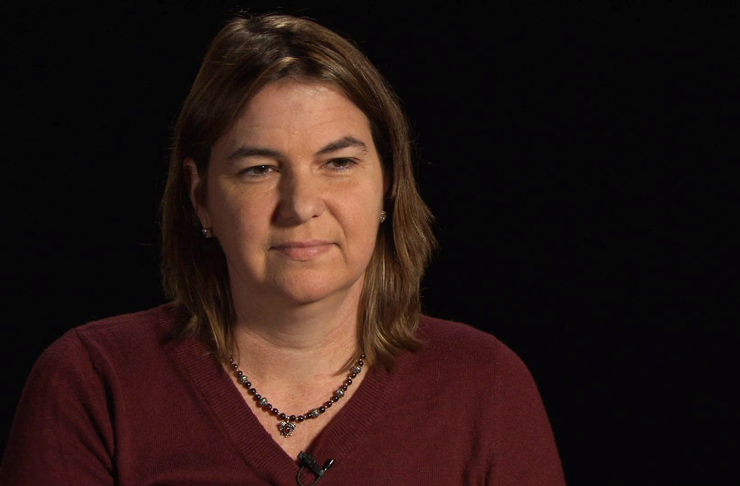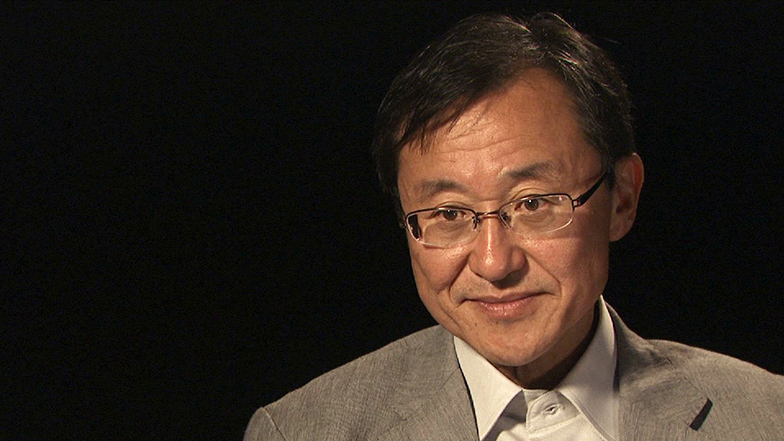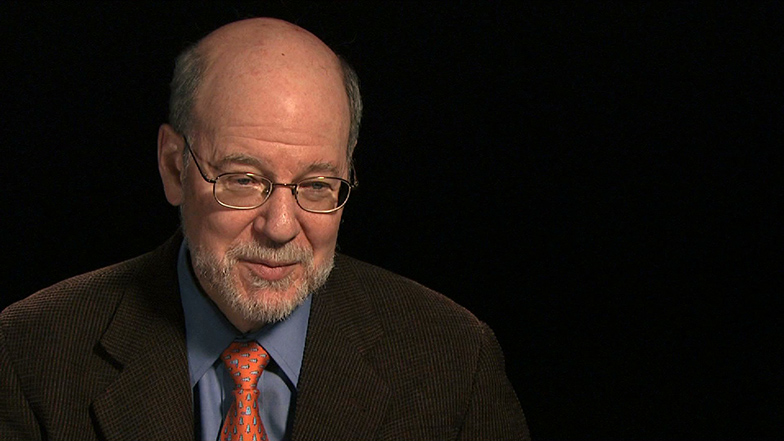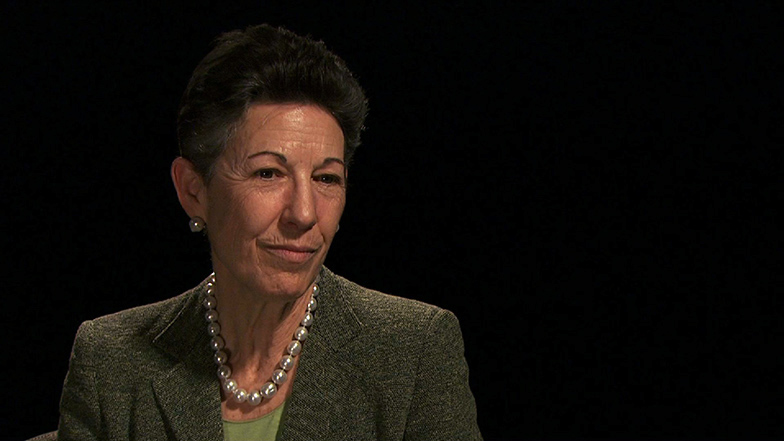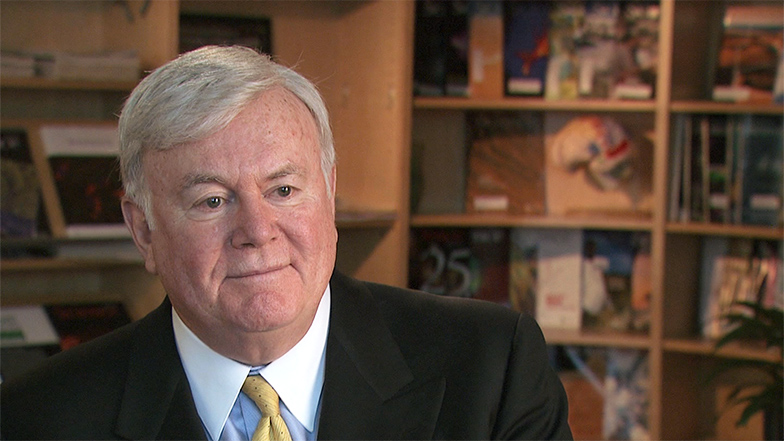Ellen T. Harris
INTERVIEWER: So this is the MIT 150th Oral History Project with Dr. Ellen Harris, and I want to start out by asking you about the early years. So can you tell me where you were born, and what it was like growing up there?
HARRIS: I was born in Paterson, New Jersey, but moved when I was three to the smaller suburb of Glen Rock. So, this was obviously a suburb of New York City. My father commuted into New York on the Erie Lackawanna, which he always referred to as the Weary Erie. There were very good schools in Glen Rock, very good public schools. So I went to public schools all the way through. My older sister went to a regional high school, because Glen Rock was so small it didn't have its own high school at that point. By the time I got to high school they did. So I went all through the public high schools of Glen Rock. It was a wonderful education with that everyone had access to that quality of public education.
INTERVIEWER: Tell me about your parents. What did your parents do?
HARRIS: My father was a stockbroker, and my mother was a mother -- stayed home, did a lot of volunteer work. She was very much engaged in many community activities all of her life. And my sister and I, both of whom went on into careers which she had not done, decided that we'd actually inherited a great deal from her because she was a manager. She basically end up running every volunteer organization that she joined.
My father's background is interesting because he had been sent off to high school to Andover, but then the Depression came. He was pulled out of high school and sent immediately to work for the family. My father never finished high school. So it's very interesting that my sister and I both were so strongly encouraged to go on to college and then we both got our PhDs.
INTERVIEWER: What role did music play in your home growing up? How did you first get interested in that?
HARRIS: Well, we were both sent to take piano lessons. That was, I think, pretty much standard. There was also music in the public schools, which I still remember Miss Whitehouse from grammar school, and the things that we did in school. We did a lot of singing mostly. And at home my father sang all the time. So we were frequently singing at home, just snippets of songs to one another. And the tendency I now have to take anything that I hear as a cue for a song is something that I learned from my father. This is something that some people find funny and some people actually are irritated that I will break out into song with the right cue line, with very little notice. It just sort of happens. But that's very much my home life, and that was my father. My father said that he sang in choirs when he was in school, and that his choir director said to him, you don't--this is a quote, you don't sing good, but you sure sing loud. So I guess volume came from my father.
Then through school, you know, began to participate in the school musicals, went to summer camp where there was a program when we did musicals, and increasingly took lead roles in the musicals, and started taking voice lessons when I was a senior in high school. And actually went into New York City so that I took lessons from a teacher in New York City. And then there were the years of what do I do? Do I go to New York and study voice or do I go to college? And the voice teacher in New York said you go to New York and you study voice, and you study languages, and you get a coach, and you learn roles, and if you go to college it will ruin your voice. But the feeling was that you needed -- my family very strongly believed in education. And I think I also felt that it was just not possible to throw all my eggs into that basket. And I don't think I ever really felt that I had what it took. I think that to become a professional singer you, individually, have to believe that you have the best voice. The voice that everyone would want to hear -- that you cannot really have doubts. I don't think that you can harbor doubts and succeed in that field.
So I have to say, I just, I harbored doubts. I loved singing, but it didn't seem to me that I could really make it professionally. So college was a good thing. College was security. It gave me an education. It gave me a chance to do something if I didn't go on in singing, but then the same question came up. Then at the end of college, did I go on to a conservatory and study voice, or did I go on to an academic program and study something that was more in the way of research in academics? I also at that point was a third possibility I was very interested in special education, because in college I had taken a number of classes in psychology, and had been a research assistant in the psychology department doing positive reinforcement training with mentally retarded children and teaching them music. And I was very interested in music as a therapy, but I ended up choosing academic research. I sometimes say I chose the field of the three that I could've chosen at that point in music that was perhaps the least giving.
I think if one had gone into music therapy and worked with children, that that is a very giving profession. And if you actually succeed as a professional and can actually give your voice, it's also giving. But research is sometimes-- especially humanistic research-- I think frequently you do because you're driven to do it, and not really because the world is dying to read your research. It's very different I think from scientific research where in fact there frequently is a bottom line where there's a huge benefit. As much as people may be interested in reading history, and there is a huge benefit to reading history, I'm not sure that musicology is as much of a gift. But I love it and so that's what I chose to do.
INTERVIEWER: And there's certainly been a benefit to your students.
HARRIS: I think so. I feel very strongly that students benefit enormously from studying music, and that from kindergarten, pre-kindergarten through college and beyond there is a very real sense, that I have-- I don't think I'm alone-- that students who study music gain enormously from that. And not because they necessarily want to be professional, but because through the study of music they learn discipline, they learn the advantage-- well, the necessity actually of iterative learning. That you need to do something over and over again in order to master it, and that sometimes that can be tedious. But even if it's tedious, it's the way forward. And I think at MIT we see this very much in our admissions process, where some extraordinary percentage of our students come with very high musical background, very high level musical backgrounds. I think it's somewhere in the 65-70 percent of our incoming students present an extremely high level background in usually music performance.
INTERVIEWER: Isn't there a sort of a connection between math and music?
HARRIS: Well that's what everyone says. When I'm on an airplane and people ask me what I do, and I say that I teach music at MIT, and inevitably there is the [SIGH] there's music at MIT? Always. My tendency basically to cut the conversation off a little bit is simply to say, oh you know, that math and music thing. Which satisfies almost everyone. Which is very interesting, because I think very few people can actually discuss what that means. Now music has a mathematical basis. We talk about the way in which notes have specific qualities to them, and there are mathematical proportions involved, an octave is in the ratio of 2:1, and a fifth --the interval of a fifth is in the ratio of 2:3. And so there are all of these mathematical proportions that we talk about. Of course acoustics is-- has its physical properties as well. Not convinced that our response to music has anything to do with that, and I'm not really convinced that when someone performs, or even when someone composes, that mathematics is at the center of that activity.
INTERVIEWER: Now I guess what I thought was the case was that people who were skilled in math often tend to be skilled in music. That either it was a part of the brain--a similar part the brain where the processing was done.
HARRIS: It is often said that people who are really skilled in math are frequently very skilled in music, and we do see this. The opposite of course, is not always true. You cannot say that people who are skilled in music are likely to be very skilled in math. Although that's true in some cases, I think it's more a one way street.
INTERVIEWER: So, tell me about your dec-- what made you decide to go to Brown and then the University of Chicago?
HARRIS: Well, when I was thinking about college, and my sister had gone to Mount Holyoke College, and there was--there was no pressure on me, but there was a sense that women's colleges were some of the best colleges. And so I did look at a number of women's colleges in the area. But I didn't really want to go to a women's college. I didn't really want to go to a very big school. And I became very interested in coordinate colleges.
And there were some coordinate colleges in the New England area. Brown with Pembroke, and I, when I went to school, I applied to Pembroke College. I did not apply to Brown. Brown and Pembroke had separate admissions, and so I went to Pembroke. And Pembroke did not grant degrees, it was not like Radcliffe in that sense. I got a Brown University degree, and of course I had Brown University professors, but I went to Pembroke and I lived at Pembroke. Pembroke was very important to me as a women's community, and I liked very much having a women's community while I was in college. But I liked very much having a women's community in a co-educational environment. Because Pembroke was significantly smaller then Brown, actually the admissions process was more stringent. So by and large the Pembrokers did better than the Brown students, because there were fewer of us. This of course did not help with dating, but we did help advise a lot of the Brown students.
INTERVIEWER: The odds were good for dating.
HARRIS: The odds were good, as long as you got the right 1/3 of class, right?
INTERVIEWER: Right.
HARRIS: And I looked at other coordinate colleges, but I was very interested in Brown. I liked Brown. I liked Providence. I liked the size of the city. And I think I--really I think at Brown is where my intellectual curiosity was awakened. I think through high school-- I've always said that I was a good do-bee. You know, I did what I was assigned, I did my work on time, I frequently thought that I got good grades because I did what was expected of me. So I really didn't have any sense of intellectual prowess, but rather doing the homework that I was assigned.
And at Brown what happened was that I really began to get interested in intellectual issues for their own sake, and not just for finishing the homework assignments. And this was at a time when Brown had a rather strict curriculum. It's a very different school today. It's before all of the curriculum change at Brown. And we had what at MIT we call general institute requirements. We had specific requirements that we had to take, and we had specific majors, and we had a special program we had to go through, and there was a good deal of diversity in the program. So general education requirements as well as a major. And I don't know how I would have done at Brown once the curriculum became completely free. It would have been a very different experience, and I think you had to be prepared to go in and create something for yourself, and I'm not sure that when I graduated from high school I was perhaps ready to do that. But I can't relive it, so I lived what I lived.
INTERVIEWER: So did that-- did the sort of awakening of your intellectual prowess-- I mean, is that the reason you wound up at the University of Chicago?
HARRIS: Well, when I decided that I wanted to go on in musicology, I spoke to the professor at Brown, who was the man with whom I had done most of my musicological work, professor Ivan Waldbauer, and we talked about possible schools, and he strongly suggested the University of Chicago. And I also had a very good friend who was going to the University of Chicago in the School of Social Service Administration, and so it-- without spending a lot of time on this, this looked like a good opportunity to go where my girlfriend was going -- that we could room together, that I could apply there, and it all worked out. So it was done rather quickly. My own children applying to graduate schools, and the number of applications, and the hoopla that admissions now is. It was very different.
And I applied, I had to take entrance exams, I took the entrance exams. I was accepted. I was initially accepted, because I applied very late, that is I made this decision very late, so I applied very late, I was accepted, I did not get any fellowship. But what I was able to do -- this is again another period -- I was able to get a National Defense Education Act loan, NDEA loan, and I don't think they exist anymore. But after my first year, then I was taken on into fellowship, which is also very difficult today. Today generally speaking you get the fellowship at the beginning or you don't get it at all. So I was very lucky, and I think times were easier somewhat at that point. But I didn't apply to any other graduate schools. That's the only graduate school I applied to.
INTERVIEWER: Let me ask a little bit about your passion for music. Is there a way to articulate what role it plays in your life? What it does for you ?
HARRIS: Well, it's changed I think over time. I don't sing anywhere near as much now as I used to. And so my work in music now is primarily the research that I'm doing. I always sing for my students. My students are a captive audience, so they always get my singing, but I don't sing professionally or semi-professionally at this point.
For so many years, singing for me was perhaps what made me feel more alive than anything else. There is a sense singing, the making of music with your own body. There is no instrument, there are no keys to press. You simply have to do it with your own body. It's probably closer to dance than other kinds of music, in the sense that your own body has to create it. And therefore there's nothing to hide behind between you and an audience. You have no piano, you have no instrument, you know, you have no cello in front of you. And you need to communicate directly with an audience in order to make that sound.
Singing, I think like athletic activities, involves a way of using your breath. A way of breathing, a way of learning to invigorate with your breath, your body. And to take in--there is, I mean the word inspiration is, you know breathing in, and I think when you breathe in a way to allow yourself to sing, to fill your lungs, your whole upper body with air and then create with that a sound that simply moves out from you and fills the space in front of you, it is as exhilarating as anything I have ever done. And there are times when I did it well, I was as ecstatic as I, perhaps, have ever been.
After coming to MIT one of the great perks that I have ever gotten in my life was the opportunity to sing with the Pops. And I don't know if I had chosen a professional career if I ever would have gotten to that level. So it was just one of those things where I felt a circle close. That if I had gone, if I had had a professional career, if I had made it to the Boston Symphony Orchestra, it would have been the very highest level of professional singing. And here I had taken a very different route, had really not earned this at all, but was given an opportunity to sing with the Boston Symphony Orchestra at Pops.
And I sang songs from "My Fair Lady," right? Not opera, not high level classical music. And John Williams was conducting, and I had in my life sung with many orchestras and many student orchestras. I had sung with MITSO, the MIT Symphony Orchestra, but I'd never sung with an orchestra of the caliber of the Boston Symphony Orchestra, or with a conductor of the caliber of John Williams. And I don't know what I thought to expect, but when we rehearsed and I stood on the edge of the stage at Symphony Hall, and the orchestra started up, the sound that rises up behind you, and envelopes you is so extraordinary and so qualitatively different from anything I had ever experienced.
I have said to many people it must be the closest thing that I have ever come to surfing, because I simply sang on the top of that wave of sound. I mean it really was a wave that came up behind me, and my feeling was at that point, you know unless you were really, really bad, that that wave of sound would lift you. I mean literally lift you up and carry you forward, and have you do your best. And the other thing about John Williams is that his control of the orchestra was a 100 percent. So I could do anything I wanted in terms of playing with the tempo, or holding a note, because he had absolute control of the orchestra, and whatever I did the orchestra was there. And frequently when you sing with a student or a non-professional orchestra, basically you need to follow the orchestra because there's no way they can follow you. So if they get rolling along, you just had better be at their tempo. But this was an extraordinarily different experience at the BSO, and a night I will never forget, absolutely never forget.
INTERVIEWER: That's a fabulous description of why it was unique.
HARRIS: Yeah. It's just -- the feeling that I got when that sound came up, and then of course the night of the performance. And you walk out on stage and Symphony Hall is -- sorry, I constantly go back and forth between Orchestra Hall and Symphony Hall because I'm in Chicago and Boston. But Symphony Hall-- full, absolutely packed-- and of course it's MIT night, so everyone on the floor is in a red jacket. I mean it's the most extraordinary thing to see, from the stage, and you walk out, and you feel the love, because it's not a foreign audience. They're happy to see you there, and you really don't have to prove a great deal. But you feel that sense of excitement and anticipation. [INAUDIBLE] and then John Williams picks up the baton, and that sound starts that you've heard at the rehearsal. And you don't have to think. You just live in the music at that moment. Just extraordinary.
INTERVIEWER: So, you're singing less now. You're doing more research, but what is it that you get from the research end of this?
HARRIS: Yes. Well the research -- well first of all, I mean one loves learning about music. I love music, so when I learn about music, when I feel I understand the music, that makes me happy-- but there are elements of the research that I'm doing now. I'm doing a lot of research on legatees and Handel's will. I do a lot of research on the music of George Frideric Handel. George Frideric Handel is a composer that everyone feels they know, but we actually know almost nothing about his private life.
And I realize some years ago that Handel's will, which is a very important document that everyone's known about for a long time, that of course he left all sorts of bequests to people. He left bequests to friends, he left bequests to other musicians, to family back in Germany. But no one had spent any time studying any of this. So I decided I wanted to find out who all these people were in his will, especially the people whose names we didn't know. And they turn out to be people almost all of whom lived in his neighborhood and with whom he socialized. They were not musicians, nor were they his patrons. They really were, to a certain extent, neighborhood friends. And studying the lives of these people as opposed to Handel-- I mean it's a way of getting at Handel obliquely. But has taken me into research areas that I had never been before. It's a kind of genealogical research, and it's more history than it is music or music analysis.
And so the places that I'm going in order to study this -- I'm spending an enormous amount of time at the Public Record Office in London, where I'm looking at legal documents and various legal suits, and reading depositions, and just a wonderful set of depositions from Aleppo, where one of-- well a brother of one the legatees had been sent as an apprentice to the Levant Company, got into an altercation in Aleppo, actually was threatened with Sharia law, which would have meant ultimately his death. But the Levant Company paid the fee that got him out of this, but in order to get all of the information that was necessary they actually had to take depositions from the Dragomen, who are the interpreters for the British Levant Company, who were writing all of their depositions in Italian, so that I read these Italian depositions and find out about this altercation where I really do think this man was at fault, and worlds open up. I never expected in my career that-- studying the music of Handel that I would be transported to Aleppo in the 18th century, that I would read all these original documents. I mean these are all original, these are the documents that were written in 1730.
And I've spent time at the House of Lords Archives looking at original documents there. Spent an enormous amount of time at the Bank of England. And the original documents there are some of the most beautiful that I have ever seen. It does remind me a little bit-- I mean it's more than a century earlier, but it's Dickensian. I can't help when I look at these documents of thinking about Cratchit and all of his poor scribal work and his freezing hands. But the volumes at the Bank of England are -- [VISUAL DISPLAY] you can see this, right? They're this big. I don't know, what's that about two feet high, about maybe 14-15 inches wide, and they are often as thick as six inches. Huge bound leather volumes with leather handles on the backs of them to pick them up. And every account is meticulously, I mean meticulously included in these volumes so that you have -- you go and you see George Handel, and you know, you see all of the account information and how beautifully and meticulously these accounts are kept. Double bookkeeping, so you always find it in two different volumes. You find-- all of the deposits are shown in two different places, and the debits in two different places, and everything is cross referenced. And the time I've spent there has been very exciting. Their archive is -- you have to make a reservation to go. They have about four places to sit, and then these volumes start appearing. You have to do something with these volumes.
So there is a sense in working with materials like this, of solving a mystery, of getting data that actually creates a picture that you didn't have previously. That in some ways by doing this research that you're creating an image that didn't exist, and that-- I mean in the sense that I said that musicology in research is not as much of a giving profession, which I think it probably isn't as things like music therapy. I do feel that by creating these images around Handel, of giving some sense of what it was like in the 18th century, that is something that is precious in its way.
INTERVIEWER: What is it about Baroque music that you think that attracted you? Why did you pick that type?
HARRIS: That's probably hard to say. I mean, I can say what I love about Baroque music. I like Baroque music because first of all I find it-- and Handel's music in particular-- extremely communicative. I think that Handel is capable of taking an emotion in a text and simply creating it, creating it so that the audience when they hear that music actually feels that emotion. I think it's one of the extraordinary powers of Handel's music that there is this kind of emotional empathy that results from listening to it. When Handel is happy, it's very hard not to be happy. I actually play pieces for my students where Handel is in a very jovial mood, or where he actually writes a piece about laughing, and you can get students laughing. They'll just start laughing back at the music, because it is so happy. And you can actually play music which is so sad and so heartbreaking that you can just watch the audience just fall into that emotion, that sense of being overwhelmed with heartbreak.
And I think there are very few composers, I think who actually can communicate as quickly and as clearly as Handel can with his music. Now I talk about music in this emotional way, and anyone, if I were talking to another musician, they would automatically you know, move into 19th century or Romantic music and say, you know, well, why not 19th century music, which is known for that, in a way that Baroque music is less known for that. And I think one of the reasons that Baroque music is for me is because, as opposed to Romantic music, Baroque music has an underlying rhythmic drive, that it sets up a dance meter and doesn't let go of it. And there is that feeling of that rhythmic patterning, which I love. And Romantic music is very emotional but very specifically does not have rhythmic patterning. And so there is a great deal of interruption and change. Whereas when you're listening to a Handel piece or to a Bach piece, usually the motor rhythm gets going. At the beginning you know what you're going to get. And that's part of the way in which, for me, the music actually comes forward and helps to communicate what it's doing is with that motor rhythm, which can be very slow, but still has a pattern to it. And then against that pattern, there is a huge amount of flexibility in the way the music is performed. And the music needs to be performed with flexibility against the beat, and also with the addition of ornamentation, which is improvised.
The bass pattern of a Baroque piece is never fully notated, so that all of the harmony has to be realized at the harpsichord from what you see in the other parts, so that there is a kind of an improvisational jazz quality to Baroque music, which then leaves music absolutely in the classical field, in the classical and Romantic era, where everything is written out and very explicitly notated. So in the Baroque era and with Handel I find this combination of sort of jazz improvisation and a kind of motor rhythm with this emotional content which I find overwhelming. People would argue with me. I mean people will argue different periods. But that's what I find in Baroque music.
INTERVIEWER: Well that's a good-- that's a good transition, because I'd like to talk about what you think your contributions have been to the study of Handel and about your book-- Handel as Orpheus, which had all sorts of mixed reviews. Not mixed reviews, but there were people who-- reacted very strongly to it in ways that maybe you didn't expect.
HARRIS: My book Handel as Orpheus, which was published in 2001, is a book that was almost 30 years in the making. Its primary focus was the cantatas of Handel, and he wrote more than a 100 cantatas, mostly in Italy, and these were the works that were the least known of his. People had studied his operas, had studied his oratorios, had studied his concertos, had studied his keyboard music, had studied his large orchestral music. And most people who know anything about music knew all of these genres in which Handel wrote. They knew some of his operas, they certainly knew some of his oratorios-- at least Mesiah if nothing else. They probably knew his water music, maybe his fireworks music. I mean you go right down the list. They probably knew a good deal of the different kinds of music that Handel wrote. The cantatas were unknown completely, and yet were a very important part of what Handel was writing early in his career, and it was something that when I finish my dissertation at the University of Chicago, which dealt specifically with the pastoral, which therefore encompassed a lot of the cantatas because a lot of the cantatas have pastoral texts. I had thought, well this is really something that I need to work on.
And so from the time of my dissertation I did work on the cantatas. I published a lot of articles on the cantatas. I worked with the original manuscripts. I did a lot of work on dating. When you date a manuscript, you're actually looking at things which are not musical frequently. You're looking at the kind of paper, you're looking at watermarks, you're looking at the way the staffs are laid out on the page. Because in the Baroque era, the music would usually be set up for the composer by a scribe, and the scribe would use something that's called a rastrum. Maybe you've seen this in a school situation on the blackboard, where you have five lines and you pull the chalk across the blackboard. Well if you're going to set up a page of music, you need to put musical lines on the paper. You don't buy it printed in the 18th century, so someone has to line the page. And the rastra from the 18th century were frequently in multiples, so that with one handle you could pull across a rastrum that had maybe four or five musical staves on it. It's astonishing that they had the steadiness of hands to do this, and that they could do this with quills and ink. Just something that I can't even begin to imagine today, you know, dipping it into an ink alley, picking it up. I don't know how you sort of keep it from dripping. Start it neatly, and then pull evenly so that you get 20 or 25 lines perfectly inked across the page with no smudges. I don't know how long it took to learn how to do this. But these pages were set up so that you could-- you can actually judge, to a certain extent, the date of paper by looking at watermarks, looking at these musical staff lines, and so forth.
So I worked in that way to date some of the cantatas and so forth. Progressed, did a lot of analysis of the works, looked at the musical styles. And then I had-- my sense was that all the cantatas were written between, about when Handel got to Italy say in 1706, and the opening of the Big Room Academy of Music in London, when he began dedicating himself to opera, which is 1720. And I accepted that for years, because that seemed about right. But there were a few cantatas that came between 1720 and about 1723, and I always felt they were just sort of outliers, not really important to this chronology, because 1720 seemed such a good date. And literally I had one of these eureka moments. I kept looking at the date 1723 and saying, why did he keep writing cantatas until 1723? You know, why are there these outliers? And I suddenly said, oh my goodness, it's when he moved into his own house. Handel moved into a house in 1723 on Brook Street in London and he lived in that house the rest of his life. So the period of time in which the cantatas were written from 1706 to 1723, is the only period in Handel's life where he made his living and moved in and out of houses of his patrons. And it became very clear suddenly to me that all of this was private music, that is music written for his patrons, that it was music that in some ways he was singing for his supper. He would create this music to be performed in the salons, the palazzos of his patrons. And once he moved into his own house, he never had to do that again, and once he never had to do it again, he didn't.
At that point, it became clear to me that in order to study the cantatas, one had to understand his patrons. And one had to really study his patrons to see what was written where. And this led me into historical and cultural investigation, and led to results that I hadn't expected, which involved sexuality. So that it became clear that not only were some of his patrons bisexual, and almost always when we're dealing with homosexuality in the 18th century it's bisexual, but that some of the cantatas or many of the cantatas could really be understood in that light, in that bisexual, homosocial environment. And so the book that I wrote ultimately dealt with that, dealt with that very explicitly. Talking about homosocial, homoerotic or homosexual attributes of the cantatas that Handel wrote. I did not -- I mean it was not an attempt to out Handel, nor can I say anything about Handel's sexuality, because I have no idea what he did or did not do, and I still have no idea what he did or did not do. But I do know that a lot of the cantatas come out of a homosocial environment in which homosexuality was accepted. For many people, or at least for some people, associating Handel in any way with homosexuality was so horrifying, because he is thought of as a religious composer who has written perhaps the most important Christian work in Messiah, and that you did not want to tar him with the idea that he even associated with any kind of homosocial culture.
Well this is totally ridiculous. I mean, this is just ridiculous. First of all, we don't know what Handel did. Secondly, even if we did it would not affect the music that was written and the power of that music to affect us. Unless you're unwilling to accept this from someone who has had experiences --that are potentially different from your own. People were-- some people were disturbed that the cantatas were described in ways that were homosexual or homosocial. The cantatas though never are explicit. I mean they're not erotic in that sense, and they are hidden. And so there's a kind of code to the cantatas, so that when you listen to the cantatas, you can't tell what the sex of the singer is, because it's not identified. And you frequently can't tell what the sex of the beloved is, because that's not identified either. And in Italian it's very easy to disguise that by simply referring to the beloved as beloved, or referring to the beloved's eyes, or whatever. So that in fact listening to the cantatas, you can have the beloved, the singer, be any sex you want it to be, pretty much so. And what I've tried to say to people, when they get very upset about this, is that really what the cantatas are about is human love, it's longing. It's about longing. They are never about sex. They're really about longing. They're about loving a person and longing for a person. And I see-- really human love, we can just accept that as a human quality. And I wish that everyone could. I wish that there really wasn't this big hoopla about this.
I'm happy to say though that the book did win two very large prizes, so the response was not all negative, it just was a little hyper. It did win the prize for the best book that year from the American Musicological Society. It also won the prize as the best book that year from the American Society for 18th Century Studies. So I was thrilled with that, because the sense was, you know it was the best book in music regardless of period, and it was the best book in 18th- century studies regardless of content, because of course there are many books in other fields in the 18th century. So that got me passed a lot of the criticism.
INTERVIEWER: You never know what people are going to say.
HARRIS: Well it was all very strange, because the book was actually described in Sunday Telegraph in London before it was published, and I was described -- my name was given correctly I believe, as Ellen Harris, and then in the rest of the article, I was described as Professor Ellis, which is a very strange amalgam of my first and last name. And I kept thinking that there was something Freudian going on in this, because of a connection to the famous sexologist Ellis, right at the beginning of the century. But that became a joke, because then that got transmitted into all sorts of publications because this article got picked up on the wire, and then I became Dr. Ellis, at one point I became Dr. Ellen, which makes me sound a little bit like Dr. Ruth.
And when I went out and spoke about the book, frequently I was asked what my own sexuality was. Because people became very -- they wanted to know whether I was pushing an agenda. And I actually got emails asking me what my sex was. Are you a man or woman, because I can't tell the way your name is given. Because it was given as Dr. Ellen, Dr. Ellis. And I have to say that no research I have ever done in my life have I gotten responses like that. And I-- the really interesting part of it was the realization that the idea that research can be dispassionate, and that one can be totally neutral as an author, is obviously not so. Now we all know this to a certain extent. But if I had pushed that aside, it was certainly brought home to me. So that increasingly when I talked on the book, I ended up talking about myself. And needed to, because the audience wanted to hear from me, who I was. And I'm an unlikely person, I suppose, to have written this book since you know I--I was a middle aged or older grandmother at that point, with you know a marriage that had lasted already at that point 30 something years -- it's now 40. And it-- there was no agenda, it was historical research. And that people see this as agenda because they take it so personally, was a lesson for me I suppose. But the height has died down some, for which I'm grateful.
INTERVIEWER: The world we live in. So you taught at Columbia. You were at the U of C. Let's talk about how you got to MIT. What drew you to MIT?
HARRIS: Well, I had been at Chicago about eight years I guess, I had been chair of the department. There were some things about my work at Chicago that I didn't like, that I had talked to people about, and was getting no response. And it was around this time, I mean this happens in one's career on and off, and nothing might have come of that except right around that time I got a letter in the mail which was just a -- I think a flyer of some kind announcing the position of associate provost in the arts at MIT. And I thought, oh that looks interesting. And so inquired to a colleague here in the music department what it was all about. And he told me basically what was going on and-- what they really were looking for was someone in the visual arts, and not someone in music. And I thought well, I may apply anyway.
There was a lot of discussion at this time about how to play the academic game, and things like playing hardball, right? If you're not happy with your position, then you need to go out and look for a different position. And I actually had a dean say something to me about that. You know, if you don't like it here, you know, go test your market value. This is the kind of thing that is really very distasteful, but does happen. Not just in academia. And so in some ways I thought, well this is-- I've never done anything like this, so, this looks interesting, I'll go see. But the realization that if you play hardball you have to be willing to move. And I understood that, I understood the way the game was played, and so I came out to MIT. My parents-- well my mother, my father had passed away-- but my mother was still living in Cape Cod, and so I came out to visit my mother, and I met some people here at MIT, and Nan Friedlander was cheering the search committee, and Nan and I hit it off immediately.
And I went back to Chicago and I said to my husband, I really like it. I really like it. It's a very interesting place. And I think that, you know, we have to take this seriously. And so I was invited back for an interview and then I ended up in the final three, and I came back for more interviews and the whole thing you know revs up after a certain point. Chicago suddenly realized that I was serious and that I might leave and, you know, revved things up. But ultimately, by the time I was offered the job here, it was simply what I wanted. I found MIT so exciting in the sense of it being a place that was willing to create a new position, to give the person coming into that position a certain amount of autonomy, money to do something with, a sense of really being able to create something, a sense of working in the arts at an institution that believes in entrepreneurship, and where in fact teaching the arts is different than at any place I had been.
I think because of the engineering core of the Institute when we teach music, or when we teach visual arts, or when we teach writing, we teach doing it. We teach composing, we teach performing. We teach art making. We teach writing. We teach-- we give credit for all of these things. Music departments, generally speaking, at liberal arts institutions, do not give credit for performance. You need to go to a conservatory to get credit for performance, unless you come to MIT, because MIT is, in effect, a conservatory. It's a conservatory for engineering perhaps, but it's a hands on environment.
I, you know, I became very excited about the whole Mens et Manus of the Institute. That the mind and the hand work together. Because I had always done musicology and singing simultaneously, this felt like home to me. Whereas in other institutions, there were times when I almost needed to hide the fact that I sang, because singing was getting, you know, it was not research, it was something else. And yet here the fact that I sang was enormously important to my interview. That I didn't just do research, that I wasn't just a humanist, but that I actually was something of an artist. Who knew that my singing would become important in that way? But I think it did here. And so when I was offered the job, I simply said yes. I mean yes I wanted to come, I wanted to do this. I remember talking to John Deutch, who was then provost, and saying to him, now you gotta make -- you know, I need to understand this. Is that, if what you want is someone to come in and say no, you need to find someone else. Because I'm not interested in moving to MIT just to say no. I'm capable of saying no, but that's not what I want to do here. I want to build something. And he said absolutely, and then you know talked about the ways in which he would help support that. That was just exhilarating. It was-- wonderfully exciting and in fact I think we did a lot of very good work. I think a lot of things happened that were wonderful for the Institute. I am a little concerned that not all of it has continued, but I think that at MIT there is an opportunity for arts and engineering in particular. But also-- I mean it's much more an arts and engineering environment than it is in the Harvard sense arts and sciences. It is hands- on work. I think we can do things here that other institutions can't, and I think that a lot of what has happened here has shown that. I think that the kind of art that is made here has shown that.
INTERVIEWER: So back at the beginning, how would you describe the state of arts at MIT when you arrived?
HARRIS: I would say fully energized and completely fragmented.
INTERVIEWER: Okay.
HARRIS: So lots of -- I would say that when I first came to MIT, the arts were, I would say, fully energized but very fragmented, so that there was the sense of lots of people jumping up and down all over. But there was not a big enough community to actually have any kind of leverage. All of the arts groups were teeny. And in an environment where, you know, the department of physics has I don't know how many hundred people, you know, you have a group that has three people. It has very little voice. And so my sense of being associate provost at the beginning was partly to create a community, to try to bring people together, and to try to have some oversight. I mean I think that one of the things that I was told outright by Paul Gray, who was then president, and John Deutch was the sense that there were so many requests coming over the transom for space, for support, for operating budget, for staff, for whatever that they couldn't actually sift through them, because it was this little teeny bit here, this teeny bit there, and they actually are used to working in much bigger numbers. And they needed someone who could actually evaluate all these various requests, and work to get a sense of what would be best for the community as a whole, and what needed to be done first, to actually prioritize things. And so that, that was part of what I was doing at the beginning.
INTERVIEWER: How did you go about that process of figuring out what needed to be done?
HARRIS: Well, no one was shy in coming in and talking to me. I think the first day I was here people were like lined up to talk to me. So there was not a real need to run around seeking people out. It took me a little bit of time to put together what was called the office of the arts. And there were -- it took some time to sort of figure out what was going to be in my purview. The List Visual Arts Center came to me immediately. The MIT Museum came somewhat later. They had all been reporting through different structures. The Council for the Arts came to me immediately. There was some question about whether it should be continued.
We needed to work with development. There was a sense of actually finding people in the development office and Glenn Strehle was absolutely wonderful to assist me with this, to find people who could be specifically of use to arts initiatives. None of these arts groups had their own development officers. I wanted to work directly of course with the dean of humanities, arts-- well it was not, the arts weren't in the title at that point. That was one of the things that happened. It was the School of Humanities and Social Sciences. I used to joke that one of my first issues was whether the "A" in HASS stood for and or arts. Now it stands for arts, so it's actually -- I'm very happy about that, that it became the School of Humanities, Arts and Social Sciences. And I'm also thrilled that finally, 13 years after I left the position of associate provost, that the -- in the general Institute requirements, that rather than this very complicated system that has existed and been modified over and over and over again of five categories and choosing one from these two, and one from these two, and one other, or one from these two, and one from another three and one from this, and one from that, or whatever. It--I mean it morphed in a number of different ways. It now is one in humanities, one in the arts, one in social science. And you know, we began working on this the day I got here and I just-- 20 years later, I'm actually-- we're at the verge of seeing this become a reality and that is enormously exciting.
INTERVIEWER: What role do you think the school plays at MIT?
HARRIS: The school?
INTERVIEWER: The School of Humanities, Arts and Social Sciences. What role does it have in the community?
HARRIS: Well I think some people feel that it's a service environment, where we teach. There aren't a lot of graduate programs, so that we're mainly teaching undergraduates. There's no graduate program in music, for example. And so when I teach I'm teaching all undergraduates. I do think the undergraduates here are smarter than graduate students in many other places, so you can do many things with these students.
But it is an undergraduate program, and so there is this sense that if we're going to give our students a broad education, that we have to have people here who will teach them. But in fact the quality of the professorial faculty in the School of Humanities, Arts and Social Science is such an extraordinarily high level in terms not just of teaching, and I do think that we are phenomenally good teachers as a whole, but in terms of research, in terms of international reputations, whether it's in research publications, or it's in composition, or it's in performance-- and speaking of music specifically. That we are one of the best programs in humanities. I think that we're better than -- frequently it was said that our program is at the level of a really good undergraduate college like Amherst. But I actually think that we're way beyond that in terms of meeting the quality-- the highest level of research institutions that have graduate programs, even though we don't -- I think that our quality is at least at that level. And I think that what we offer the students is a sense of themselves, first of all. I think some of our students come in to the Institute with the sense that their intellect and their selves are completely separate. And I think they need to get to know themselves a little bit, and I think what we do in SHASS is teach them about themselves. I think we also teach them about culture. I think we teach them about the world.
I think one of my mantras was-- when I was associate provost-- was that we can be the best school in science and engineering, if all we teach is science and engineering. Because--and I think you know MIT learned that lesson in World War II-- learned that to send people out into the world, they have to know something about the world, and not just what they learn in science and engineering. And that's when the general institution requirements were established immediately following World War II, that included this humanities component that was eight courses-- well, eight classes in MIT lingo. And so I don't think that I'm speaking in a way that is any way surprising to MIT, because I think MIT came to this decision after World War II.
And I think that there is the sense that only by living in the world can we improve the world. You can't really live outside of the world and enforce your improvement on it. You really have to come from within. And when we go out especially to other cultures but even in our own culture, if the fix comes from within, if it comes within an understanding of the culture and the language, you actually have a much better chance of success. And I think our students learn a great deal from us in that regard. I also think that the way in which the humanities are studied, that one of the things that we are talking about a great deal is evidence, and the use of evidence, and evaluation of evidence, and the sense that there isn't necessarily a right answer. That there are many answers. And that you have to live with a certain amount of doubt, and you have to live in an environment in humanities where multiple solutions are possible. Many MIT students want an answer, and it's very difficult to get an answer in humanities and social science. And so to learn to see around corners is something that's important. To learn that the shortest route from A to B may not be the best route, if you want to accomplish something, or even to solve a problem. These are things that I think the humanities give, quite aside from content, and the content itself is enormously rich.
INTERVIEWER: We talked about sort of this state of arts at MIT when you first got here. Tell me about some of the changes that you made. Besides the "A" in humanities, arts, and social sciences.
HARRIS: [LAUGHTER] One of the things that I wanted to do very much while I was associate provost was to build an institute-wide artist- in- residence program. And I think we made some headway with that. I think we had some very, very good years. It was very hard to do. What we were working on was not bringing a composer to music, or bringing an artist to visual arts, but actually bringing artists to various programs across the Institute, and trying to find intersections between arts and science, arts and engineering and arts in the community at large. And so there were a number of ways that we tackled this. And an enormously positive reception, generally speaking, for this idea. And there are certain artists that have been at MIT that were associated with this program, at least in part that give, I think, a very good picture of the kinds of things that we were after. Felice Frankel, a wonderful visual artist, worked here, and also at Harvard to a certain extent, with various of our scientists. She's a photographer and creates images that actually help to explain the research that they are doing. And with her work in photography, we began getting literally more covers --
INTERVIEWER: Like?
HARRIS: -- Scientific American covers, because of Felice Frankel 's photographs. The idea that a photographer, that an artist, actually had an eye that could show the research that was being done, to better effect, perhaps, than the scientist themselves. Of course she needed to understand the science to be able to do some of this, but her work is utterly fascinating, and exhibits of her work-- I mean, just absolutely beautiful photography. So that's one example.
Another example is of the sculptor Arthur Ganson, who does these mechanical sculptures that move. I think there are many now on permanent display at the MIT Museum. But working within mechanical engineering, and especially I think with the mechi contest with these things that they create in competition with one another to do various chores that have been assigned them. Whether it's picking up a ping-pong ball and putting it in another place. These creations, these mechanical operations, these creations from their toolbox have to achieve a certain goal. And I think Ganson's very imaginative mechanical sculptures helped in many ways to explore the idea of imagination and creativity and creating some of these.
I worked with Woodie Flowers for awhile with this contest, and Woodie is extremely interested in art, and served for awhile as the MIT trustee at the MFA, and we thought that-- every year the machine that wins the contest and knocks the other one off the platform, or does the best job and it's an elimination contest, wins. But we thought well we'd also give an award to the machine that was built that was aesthetically the most pleasing. And we did this for a few years, until it became clear the machine that was aesthetically most pleasing won every year. And that sense of-- what is aesthetically beautiful is also the best mechanically is a very interesting outcome of that particular investigation. It's sort of what mathematicians frequently talk about, the beauty of a problem. And I think that that sense of aesthetics was very interesting to that.
We had Richard Preston, who's the science writer, and who had written about ebola, also came in and did a residency in the biology department for awhile. And so we kept trying to move these things out.
This was in the-- tradition of Berenice Abbott, a photographer who had been here many years ago, that-- this idea of artists working side by side with art-- with scientists and engineers.
We also brought in very high level artists through the Abramowitz program for campus- wide events. And we had Gregory Hines here. And then inter- residencies. A number of these were through the Abramowitz program, which was an endowed program in the arts. So, we had Gregory Hines.
The most exciting was Toni Morrison, who we had come in the spring to give a lecture in Kresge and these lectures always filled Kresge. And the one with Toni Morrison was the most exciting because in fact there was a huge overflow crowd. And we had her come in the spring of the senior year of the class that-- when they were freshmen had been asked as pre-freshman, before they came in, to read Toni Morrison's Beloved. This was at a time when freshmen when they came in were asked to read a piece of fiction, which I don't think happens anymore. But they would sit and discuss the piece of fiction. And it was Morrison's Beloved, which is in many ways a very difficult book to come to grips with. It's very emotionally charged. And you know, for 17- year- olds. I didn't sit in on a lot of these discussions when they were freshmen. But the entire class wanted to be in the Kresge for this presentation by Toni Morrison, and we ultimately had to bring in-- had to ask her permission bring in extra chairs so the entire stage was filled with folding chairs. So that they were students on stage, and there were students up in the side balcony over here, and all of the seats were taken, and we had to broadcast it into other places.
And when people like Gregory Hines and Toni Morrison came to the Institute, they also worked with classes. We set up mini- residencies in various classes. We had Isabella Allende, David Henry Hwang, Steve Reich. So we just had this wonderful assortment of people, who are artists at the very highest level, coming in and working with the students in the classes, giving lectures. And my sense of that was that it was enormously important for the community, because the entire community was therefore coming together for an arts event, and the realization that you know this was enormously important. I don't see a lot of events-- headline events of that type today. And I don't know what happened to the Abramowitz funding, and whether in fact it perhaps is not possible through the funding sources today. But I felt at the time when we did this every year when I was associate provost-- that to have sort of a huge culminating event on campus where we had overflow crowds at Kresge coming in to see an artist and who then went out into classes, was very important. And these other residencies like Felice Frankel, and Arthur Ganson, and Richard Preston, also very, very important.
I think-- it was one way that I thought that we built a community for the arts at MIT.
I think also it's because of this artist- in- residence program, that this takes us in a very different direction-- that Chuck Vest, when he was president, asked me in I think 1991 to chair the Committee on Campus Race Relations, which was a committee that was set up for the first time at that time. There had been an incident in one of the fraternities and the thought was that we needed a committee on campus that was actually dealing with the whole question of race relations and diversity on campus. Not a committee dealing with hiring. We were not dealing with hiring. We were not dealing with admissions. We were not dealing with -- I mean those are different kinds of structural issues. We were literally dealing with race relations on campus. And I think that I was asked to chair that committee in part because of the recognition of the kinds of diversity in the arts that really were making an impact on campus, with having people like Gregory Hines, or Toni Morrison, or David Henry Hwang, or Isabella Allende is that you know we were actually bringing people in of African American descent, or Hispanic, or Asian, and that in the arts, the kind of diversity that exists both in its practitioners as well as in its content was something that would help the Institute. And so that the arts became inextricably, I think, intertwined with the idea of race relations on campus, and I thought that was important.
INTERVIEWER: What was the outcome of being on that committee?
HARRIS: Well, again it's a time-- I mean I was chair of that committee through the year after I left the position of associate provost, so I think it was through June 1996, but maybe further. I'm not actually 100 percent sure. We did many things for the community in terms of -- we became a locus, where you know students were upset about something they would come to us, interestingly. We also created events on our own, and it was very useful for me as chair of that committee to also be in charge of the office of the arts, because in fact, we could use the office of the arts to set up programs, that were then assisted by the Committee on Campus Race Relations, CCRR. So there was a good deal of synergy between the Committee on Campus Race Relations and the office of the arts in terms of programs.
Also through the very, very good works of Dr. Clarence Williams in the ombudsman's office. He-- had made a video that he had taken of African American students here called "It's Intuitively Obvious," which was enormously moving, where the African American students talked about their experiences of race at MIT. And we decided among the committee that one of the things we wanted to do was to produce a series of these modeled on the first one that Clarence Williams had done. And we ultimately created videos for Hispanic students at MIT, for Asian students at MIT, and then we bit the bullet and we did one for white students at MIT.
And these videos were moving and shocking, both. Very difficult to watch any of them. It was, for me, particularly difficult to watch the video of the white students, because a lot of the prejudices came out very clearly in ways that I would never have imagined would have happened on tape. And we created a composite video of excerpts of all of them. And that-- I used that. One of the things that I did as chair of the Committee on Campus Race Relations was to go to various departments and speak to faculty about issues.
So one of the things I did as chair of the Committee on Campus Race Relations was to go around to various faculties and to talk about issues of race in the classroom. When I first started doing this, the general reaction was, I'm sorry that there you know is this problem elsewhere at MIT, but it doesn't exist here. And once we created these videos and we created a sort of 20 minutes composite video, with selections from all of these videos where students talked about their own experiences in the classroom and at MIT and on the streets. What I began doing was when I was asked to go speak to a faculty, I would begin by saying I want to play a 20 minute video to start, and I would put the video in, and at the end of the video, basically the faculty in the room would say, what can we do to help? And I think it was one of the biggest contributions that the CCRR made in the sense of making real this sense of stereotype that we don't think about.
We don't think about walking down the hallway. We don't think about in our conversations, I don't think. I think very few people who have it think very much about white privilege. I don't think they even understand it is a privilege. So to bring home some of that-- and again the MIT students were very articulate about these things, I think that that made a huge difference at a difficult time.
I you know I remember so vividly on the Asian students video, the students talking about there being no place in the world where they were at home. That if they went back to the country from which their parents came, whether it was Korea, or China, or Japan, that they were immediately seen as foreigners just by the way they walked, by the way they dress, you know, that they were Americans. It was very clear. And if they walk down the street here, you know frequently little children or high school kids or whatever you know would come up and start just this sort of taunting about being Asian, and you know holding their eyes or making sounds as if they were trying to speak their language or what Chinese sounds like to them. Horrifying, that this happened you know, walking down the street in Cambridge, and that they were never at home, you know they could never relax in the sense of being among people like them.
Something I had never thought about until I saw it. I mean this will sound naive, I'm sure, that I had never thought about it. But what is it now 18 years ago? I hadn't really ever thought about it. And those experiences changed my life, changed my attitude, changed what I did in the classroom. And I like to think that they changed other people's attitudes as well. I'd like to think that we've progressed beyond some of the issues we were facing in the very early 1990s. I don't see as much of it as I did then. And I think that the -- I mean I really do think this was a place where the arts and-- came together with a very important issue, and that the two worked hand in hand. The creating the videos was something that was in some ways an artistic endeavor.
INTERVIEWER: There's a couple of other questions I have about-- trying to change the profile or of the profile of arts on campus. I guess I'm wondering, there must have been some resistance to the idea in the MIT community, and I wonder whether you want to talk about that.
HARRIS: Well, when I came here I did have this sort of sense that I was coming on a white charger and going to save the day, that I was going to bring humanities or the arts you know to the Institute. And of course that's just totally ridiculous, because the arts existed here from the founding of the school. There is, whatever it is, this synergy between math and music. The role of the arts in engineering is extremely real. You have to visualize everything you do. We've been teaching drawing and technical drawing from the day the doors opened on the Institute. So between the whole sense of the visual arts as an essential component of engineering and the whole question of visualization, the idea-- I mean MIT is one of the founding institutions of the MFA, so that you know there is an-- there's an appointed MIT Trustee to the MFA to this day.
The idea of the importance of the visual arts to MIT, I think, is critical. Music has been at MIT since its founding, and that may just be because people who came here cared about it. And it really didn't take me very long at all to realize that what I was doing was building on foundation that was in fact very strong across the school, and that quite opposite from the idea that I was bringing somehow arts to the Institute, was the realization that if there was a liberal arts education anywhere in this country, it was here. Because at most liberal arts schools, the students who study the arts will avoid taking any science whatsoever.
So our students who were taking the science core and the humanities, arts and social science core were getting what I think Paul Gray called dual pillars, that our education was built on these two pillars. It's a wonderful image because of all the pillars around MIT. And balanced across this humanities core and science core that the education was built on that. That our students were getting a liberal arts education. The arts students graduated with a liberal arts education before I came. And -- I began to see that at many other schools this didn't exist -- at schools that were called liberal arts this didn't exist.
So my role was not actually to save the day but to actually find a place-- you know to try to find and build art's place, as opposed to the humanities and social science's place. And I think we did that. I mean I think that a lot of change happened. It certainly has happened in the curriculum, in the sense of the arts now being in the middle of humanities and social science in the school. And I think it has happened in-- to a large extent in terms of resources. And it really in resources is where you get the battle is that, you know, people who are opposed to the arts being here, and I don't think there any people actually opposed to the arts being here.
But people who were in any way opposed to a greater place for the arts at MIT, were, I think only opposed in the sense that they didn't want precious resources moved out of, say science and engineering into the arts. But in fact I've never felt that those pools of money were so fungible. Basically science and engineering is supported through its own sources and the funding sources that we found for the arts were different. I mean we got support from the National Endowment for the Arts, which was certainly not funding science and engineering. We got private funding. We had the Council for the Arts, which we tried to -- the Council for the Arts had been a friends' group. And we've worked very hard to create a stronger development site to the Council for the Arts, so that they became very seriously supportive of the work that we were doing here in the arts, and they continue to today to do that. Probably what's best known that they do is the grants program, where they have funding cycles and students across the Institute can apply to do arts projects and receive funding for it from the Council for the Arts.
But the Council for the Arts has done much more than that. In my time as associate provost, we were able to improve facilities incrementally to a very large extent across the Institute. We recently-- I think of this basically in chronological order-- the first was to create a space with sprung floor for dance. Dance here -- Beth Soll was overseeing the dance program here, and there was no space in which they were working where there was a strong floor. And I mean this is physically damaging. And when I found out that you know, there was this great sprung floor on the basketball court, you know, I just went ballistic. It just-- you know dance needs to have a sprung floor. And we actually got the money for it from an alum, and created the dance studio that exists in Walker. Now that doesn't solve our problems with dance, but that dance studio was built in 1990 for our dance program, and that still is a major space in which our dance program exists. And we need to do more, but I was very happy to be able to do that. The gift actually came from Carl Sontheimer who -- I've forgotten the machines, it's the blender, it's the cuisinart. Sorry, of cuisinarts. And he found out that we needed a sprung floor, and he found out I didn't have a Cuisinart, and he sent me the check in a Cuisinart. It's just one of my favorite stories. So I mean, I was very glad that I didn't turn it on you know since the check was in it. So there was that.
Then music had no practice rooms. I mean how do you have a music program with no practice rooms? It's not possible. Well three members of the Council for the Arts donated the money for the music practice rooms. And they exist now on the second floor of building four.
There was no photography lab for the visual arts program. A member of the Council for the Arts donated the money for the Bernice Abbott Photography Lab Individual Arts Program.
Theater Design was in a physically disastrous space. First in E-20 and then in Walker, where the people who are actually doing the design work were having health issues in terms of mold and I think vermin. And I won't get into all of the issues. And again the Council for the Arts raised the money for the theater design facility that we now call the Rinaldi Tile, because it's in the old Rinaldi Tile building. And so that has really changed the face of theater design here, which is a curricular offering. They now need bigger space, but again we got them into space that was not physically damaging to those people.
The music library needed to be renovated desperately. And we were able to raise that money through private donors. The main donor was Cherry Emerson, who perhaps may be unique in naming the library for his mother-in-law. I am not sure that any donor ever in the history of the world may have named something for his mother-in-law, but he did.
But again many of the members of the Council for the Arts donated that money. So my sense that this fear that somehow the arts were going to absorb all of these millions of dollars that were going into science and engineering is just ridiculous. It's not a worry. And I think that maybe over the time I was associate provost various of these incremental facilities changes, maybe some of that became clear. I wish during the time that I had been associate provost that we had been able to make more progress on the big changes on a performing arts center, which we're still talking about and which we still don't have. But it was clear to me and I made the decision that if I waited for the performing arts center, that the changes that were desperately needed wouldn't happen fast enough. I think in retrospect you-- one could argue that if I held out, perhaps we would have a performing arts center today. But maybe not. And in the meantime we have taken care of a lot of issues that needed to be taken care of. We've raised money for prizes and awards that didn't exist previously. I think that the office was bringing in between $1 million and $2 million dollars a year in development funds from private individuals that helped for our programs. So I think from the point of view of big science, that that doesn't sound like a lot of money, but we were able to achieve a great deal with what we raised.
Vera List gave us an endowment for the List Visual Arts Center, which did not have one previously. So we actually began building an endowment for the List Visual Arts Center. Thought that was very important.
Made enormous changes to the MIT Museum, which has continued to improve its facilities. And I considered that important.
We had a huge altercation in 1991 with the NEA when they canceled funding for an exhibit at the List Visual Arts Center called Corporal Politics. This was at a period of time when there was huge concern about the visual arts, and there were increased calls for censorship, and members of the Senate and the House of Representatives didn't want any government funding going to anything that had sexual undertones or overtones. And Corporal Politics is an exhibit that in fact included body parts, but there was no sex in it.
INTERVIEWER: Was that the Mapplethorpe-- it wasn't the Mapplethope exhibit.
HARRIS: -- No, it wasn't the Mapplethorpe exhibit, and it wasn't the Serano, which was Piss Christ, which also aroused all sorts of ire. But the NEA canceled-- well we were supposed to sign some kind of declaration saying that there would be nothing of X, Y, and Z in the exhibit. And I talked to Chuck Vest about it, and we agreed we wouldn't sign. We simply said no, we're not going to sign this. And we didn't sign it, and so they canceled the grant. One of the things I did as associate provost is I ended up writing a number of pieces on censorship and patronage in the arts. So I mean there's an article on censorship in the arts in the Chronicle of Higher Education that I wrote. There--the position of associate provost for the arts was something of a bully pulpit, because people were very excited about arts at MIT. And what happened with the List Center was that ultimately, and out of the clear blue and without being asked, Aerosmith came forward and replaced the money that NEA had withdrawn.
So the exhibit went forward funded by Aerosmith. It's the only time I've met them in person. And that was very exciting. We all thought that that was one of the best outcomes one could possibly have gotten. We were very interested in -- because of that and because of our interest in the patronage, we actually put together a very important national conference on the Public Patron in 1994, which grew out of our issues with the NEA. I spent a lot of time working with the NEA and with the College Arts Association and the Getty. And there were many, many conferences and meetings during that time about patronage, and support for the arts and arts education, so that I wrote a piece on the importance of arts education from the point of view of MIT in K through 12, for the Aspen Institute Quarterly. I mean there are just many things. It was a very, very active time.
INTERVIEWER: So what made you decide to step down?
HARRIS: My feeling was that one of the-- the goals that was enormously important for me to achieve was for me to have a successor. I had seen at Academic Council that many unique positions were created, became completely identified with a single person, so that when that single person retired or left the position disappeared. I saw this to a certain extent with Margaret McVicar, Jay Keyser's position.
There are positions that simply became so identified with the individual that no one could really assume. So things had to be changed after that. And I felt that I needed to ensure that I left soon enough, and at high point so that it would become apparent that another associate provost had to be appointed. And I did achieve that. The problem is that of course it didn't continue after the second, so that the role of the associate provost has now been subsumed into an associate provost position, where there are many other duties and responsibilities. I had thought that that would work perfectly well, because in fact I had many other responsibilities as chairman of the Committee on Campus Race Relations, and at a certain point I began-- I took over the management responsibility for the MIT Press and various other things that my successor didn't do.
So I thought well, you know, people will have a big portfolio. It doesn't matter what they're called. But I really think that the position has changed and I really think that the energy that went into this position and went into the office of the arts has been diluted. It hasn't gone away, but I think it has been very much diluted. And maybe one of the reasons for that is because in fact that enormous headway was made, and in fact those things continue. You know the arts are now a part of the school, and the arts are now going to become an equal partner in the undergraduate general institute requirements. And so on as we moved down the road. But I think without an associate provost who is very actively involved specifically in the arts, we're not getting the same institute-wide programs. We're not getting the same kind of headline events. I don't think we're working across borders to science and engineering to the same extent. It's again all about the arts, and it's arts within the arts program. And one of the things that I had really wanted to see institutionalized is arts across the Institute. And that's just hard to maintain unless someone is spending a lot of time on it. And I don't think that's happening. So I think there are some losses and I really, really wish we had the performing arts center, but the gains that were made are gains. And you know all of the new facilities are still in use and have been essential, and I think that MIT can be very proud of the role of the arts at MIT. Again it is arts and engineering. And it's Men's et Manus, and we make it happen here.
INTERVIEWER: Do you think in terms of your own career there are ways in which being at MIT has either helped or hindered your work?
HARRIS: Oh, it has very definitely helped. For example the book, Handel is Orpheus would never have happened the way it happened if it hadn't been that I had been here as associate provost. Now that may be a passive reason. That is, doing the administrative work on the one hand slowed me down, and it slowed me down sufficiently that in fact things became apparent to me, that if I had actually published the book on the schedule that I had originally planned, would probably not have occurred to me.
On the other hand, being associate provost and being at MIT opened up a way of looking at the world that was broader, that got me out of say an academic or intellectual trench. One can become very involved in one's research, to the extent that one wears blinders, and one is seeing very narrowly. One of the advantages of aging is that one tends to see more broadly. I've often thought that, that young faculty coming directly out of graduate school should be given all of the graduate teaching, because they are the most narrow. They've just finished a PhD. They're very focused on a specific research project, and this is what their best equipped to teach. The idea of teaching more broadly, the idea of putting that in context with a lot of other things, frequently comes with some more age and experience. And so that might have happened, but I do think what happened to me at MIT and the experiences I had at MIT really gave me insight and breadth that I wouldn't have had otherwise. I also think at MIT there is a kind-- again I mean I've used the word before-- but of entrepreneurship and very much of getting it done, doing it yourself, making it happen, finding your own way. And I think sometimes in research there is a kind of cattle call. The sense of you know you do this, and you do this, and you do this, and you do this, and it's a very distinct straight line. But at MIT this idea of finding your own path and building it yourself is something that allowed me, gave me permission, to move into areas I think I would not have otherwise.
INTERVIEWER: Have you had issues or concerns around sexism here?
HARRIS: Well, for years I was the only woman academic on Academic Council. Chuck was very, very good at appointing women vice presidents where there hadn't been women. And I mean so that when Glenn Strehle retired, he appointed Barbara Stowe, and there were a number of women vice presidents who came on board, but I was the only woman academic for a long time. And the difficulty at Academic Council with that, was that there was a tendency, or sort of a natural inclination, to refer issues that dealt with women to me. And it was very important for me to say, you know I'm not every woman, and my experiences in the humanities have not been the same as women in science, and have not been the same as women in engineering, and you know you can't count on me to give you the information that you need. You need other women here to give you the perspective. My perspective is too narrow.
Personally, did I experience any sexism? Is that what you're asking?
INTERVIEWER: I guess I am.
HARRIS: I would have to say that either that I've repressed it totally or that the kind of sexism that one feels are just sort of in the fabric of life. I don't think that I ever had an episode. You know, I never had something that would have driven me to an ombudsperson to speak to. In fact, I have the feeling, to a certain extent, that I guess that being a woman here was something that was a good thing sometimes. Maybe overall it was neutral, but I did not have any concern about it.
I worried a great deal on Academic Council about how to dress as a woman. And I spent some time studying the dress of my male colleagues to try to get some hints, and I came up with this wonderful summary of the way the men on Academic Council were dressing, which people still are amused by. And I was talking recently to some members of Academic Council from that period, and we were joking about -- it's still true today basically-- is that the vice presidents, the male vice presidents, dressed in business mode with suits, white shirts, with stays essentially. And conservative usually diagonally striped ties that the academic officers, like the deans, Chuck, tended to wear -- well Chuck less so, but the deans certainly tended to wear sports jackets, neutral trousers, pastel button down shirts, and somewhat more flamboyant ties. But then there was the sub-arts category of people, like the dean of architecture or Jay Keyser frequently but, who wore alternative style jackets, whether it was like a Nehru jacket or sometimes a leather jacket, and frequently very dark shirts-- brown, black, and very flamboyant ties. So there were these three different styles of dress. And I liked watching to see whether in fact they, held to the standard or not, which they did pretty much.
INTERVIEWER: This could be another book to research, very interesting.
HARRIS: I think my own decision was that I needed to dress as conservatively as possible, by and large. Today I wouldn't need to. But I felt that, so I mean in that sense I suppose I was concerned about being a woman on Academic Council. So I tended to wear suits and --
INTERVIEWER: You were the only one there.
HARRIS: -- Silk blouses and pearls, [LAUGHTER] and, not to dress down, ever. And now I wear slacks all the time, but I didn't at that point. And really I, you know,-- watching the women who have been on Academic Council since, I think this has changed. But my -- I was very concerned about it, I was aware of it. People asked me how I dealt with Academic Council, because you know, with all the men, and I said I wear a dark suit and no one notices. So people sometimes ask me how I dealt with Academic Council when you know with all the men, and I said well I wear a dark suit and no one notices. So I mean, there was a joke about it. But I don't think I was ever victim of sexism. Not ever, that I can remember here.
INTERVIEWER: We're running short on time, so let me just ask a couple generic kind of reflection questions. What is it that you think makes MIT unique? Distinctive, maybe is a better word.
HARRIS: Well, one would have to start, I think, with the Mens et Manus. With the idea that it's both the research and the practical, the hands-on work. Now that doesn't make us unique, but I think that's the beginning of what sets MIT apart. It certainly sets MIT apart from many of its competitors at the same level. The extent to which that has infused everything that is done at MIT. I think that the importance of the humanities, arts and social sciences at MIT, and the quality of the humanities, arts and social sciences at MIT, and, therefore, the broad liberal arts education that all of our students get sets MIT apart from its competitors in engineering.
We are way ahead of schools like Caltech in that regard. So that if you compare us to, you know, a place like The University of Chicago, there's very little hands-on work there. And you don't get credit for performing in the same way that you do here, or didn't when I was there. And there is a sense at Chicago that the essence of the place is theory, is the theory of whatever, and the theoretical and rigorously theoretical approach. And here I think everything is affected by a rigorously practical approach the sense of will it work? How does it work? I end up teaching music differently here than I've taught at either Chicago or Columbia because of this difference. When I was teaching at Columbia or teaching in Chicago, I frequently taught from the point of view of history, from a historical perspective, or from a cultural perspective.
Or I would you know, if you talked about Beethoven, you begin by saying there-- Beethoven's career is always divided into three periods, there's the early, middle, and late Beethoven, and you know these are the stylistic issues here, here, and here. You can do that here, but the students will sort of go blah. It's not really what they want to hear, or they don't want to hear it first. Basically, the way to capture a student here is through hearing, playing, and working with the notes. So that if I'm even working with students who have no musical background at all, if I'm sitting at the piano and we're doing a Schubert song, I will play the song and maybe play it and sing it, and then say okay it sounds pretty good, right. We accept that this is what it is. This is the Schubert song. Did it have to be this way? Is there another way it could have been? Let's look at what its constituent parts are. There's a certain accompanimental pattern that's happening here. So many Schubert songs have an underlying accompanimental pattern. Well what if I use a different accompanimental pattern? What if I use a pattern from one of his other songs? How does that affect the setting of this text? Or this piece is in major, which has a certain sound, what would it sound like if this piece were in minor? Or there's cadence here at this point, or there's a deflected cadence at this point. What would happen if we did a deflected cadence where there was a cadence or did a cadence-- you know, reverse these things. And then simply take the piece apart and start playing it differently, and start using these different configurations.
I feel when I do that, that I'm actually sort of getting at the mechanical engineering toolbox. That is a composer had a toolbox. He had choices. Sometimes when we listen to a piece of music, we listen to it as a fait accompli. I mean it's this way, it had to be this way, it could never have been any other way. And of course that's not true of any piece of music. So what were the composer's choices? And why this choice and not that one? And what were his materials? What was in his toolbox? What was available to him? And the students are simply extraordinarily interested in that conversation. And once you have that conversation and talk about the kinds of choices available to Beethoven and the kind of choices he made early in this life, in the middle of his life, at the end of his life, you can then talk about his early, middle, and late styles
and it makes perfect sense to them. But it's not a historical fact that they're interested in until they've taken the piece apart. Until they've taken the radio apart in the garage and seeing what all of its innards look like. Once they've done that, then in fact the historical or cultural background can be attached to something. I think that is-- again I'm using a very narrow musical example, but I think that's part of what is unique here. And it goes back to this idea that the Mens et Manus model is true really across the Institute and changes the way people think here even in the humanities.
INTERVIEWER: Are there hopes or goals that you would like MIT to accomplish as you look forward? Or perhaps another way to think of that answering this is to you know advice for the institution or the community?
HARRIS: Well, as I've been talking, I've talked about really wanting to see the arts have a presence across the Institute. I think arts exist across the Institute in science, in engineering, in humanities. Even in Sloan-- in fact I worked with Sloan. I did many projects with Sloan, which is very interested in the arts actually, as a school, and we looked at many examples of corporations that use art in fact in their headquarters and what that does for a business model is to have spaces in which music or visual art plays an enormously important role.
And we actually talked about it with Sloan in terms of how people were hired. In fact there were some companies that we talked to that said when they talked to MIT students they were looking for students who had concentrations or minors in art fields, because they knew that those students had an imagina-- they had an imaginative life, that they thought was enormously important to the work that they wanted done. These are various consulting firms. So I think that there is a place for arts across the Institute and not buried within its own subject material. That is, I don't think MIT will ever get to where I really believe it needs to be in the arts, if it continues to pursue the arts simply as a subject within arts departments. And I thought we had made some headway, and I would love to see that again spread out in the sense that the arts are critical to everything at the Institute. And I would love to see facilities. There are just-- there aren't the kinds of facilities here. It's heartbreaking to me that our faculty is called out to places like I guess, Case Western Reserve-- where they build these enormous technologically rich performing arts centers, and they have no program content, so they bring us in. You know we have the content and we don't have a place. I mean we really have no place in that sense. I mean Kresge is not a technologically rich environment in which you can do performing art well. It was never built for that purpose. So there is a sense that we are missing-- missing an opportunity for what could be done here with the very people who are on campus, and who now go other places to do it, because they can't do it here. That's the saddest thing.
